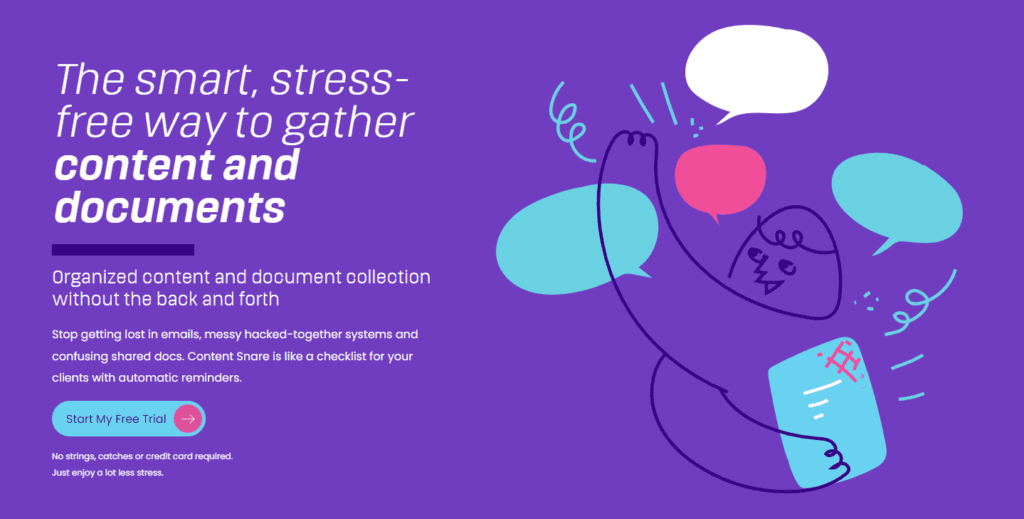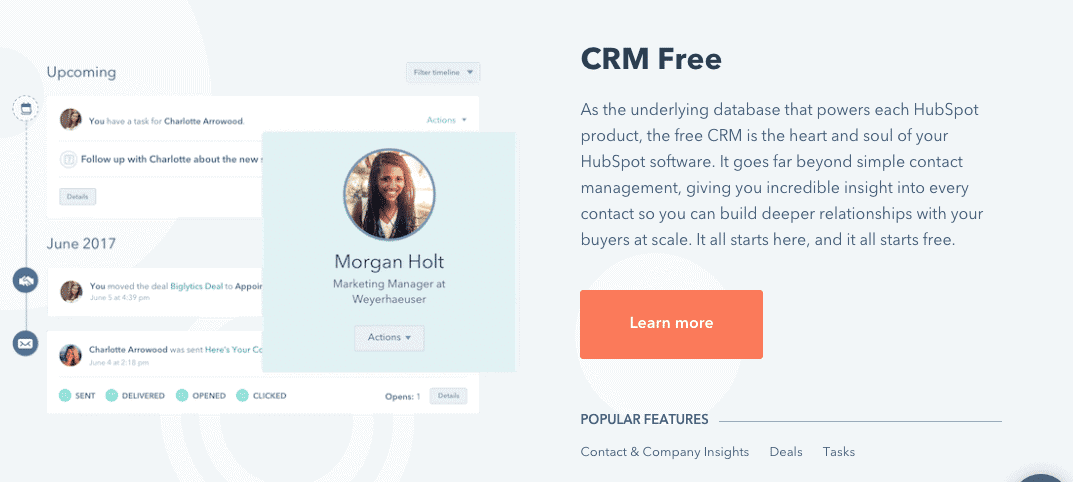The home page is probably the most important page on your site. It’s a high-traffic platform that serves as the jumping point for users to explore everything else.
Effective web design is only the first step to creating a great home page. It’s the content you put on it that really makes or breaks it.
No matter if you’re working on your first home page or your fiftieth, here are 7 helpful tips to ensure it’s impactful for your audience.
1. Write for your customer
Every sentence on your home page should be focused on addressing your audience’s interests and answering their questions. Before you start writing, try to put yourself in their mindset. What would they want out of a home page like yours?
Many businesses make the mistake of turning their home pages into a glorified “About us” or “FAQ.” Leave that info for your second-tier pages, and instead focus on staying audience-oriented. Instead of talking about you and your business, talk about how it benefits them.
2. Highlight your value proposition
Your home page shouldn’t waste any time communicating your unique selling proposition (USP). Make sure your site visitors understand what your company has to offer and how it’s different from your competitors. You could address this in your headline (more on that later). If your USP takes more than one line to communicate, then you can utilize subtext as well to make it stay prominent.
Here’s an example from ContentSnare’s headline and USP:

3. Use industry keywords
Images and graphics are an important part of any homepage, but don’t use them in lieu of the written word. Industry keywords that describe your business will help your site appear in search results.SEO keyword research doesn’t have to be overly complex. Start by making a list of key terms that your audience would associate with your business/industry. Then, use keyword research tools to verify their relevance and see suggestions for other similar keywords to use.
4. Cut out unnecessary information
With some homepages, you really can just keep scrolling. But that doesn’t mean you should fill out your homepage with all the information your audience might want/need.
Make your home page content goal-oriented, then help navigate readers to other areas of your site for more information. Once you’ve created a draft, read through it and look for any unnecessary information. Cut out the fluff or move content to a secondary page.
5. Focus on benefits, not features
Your home page isn’t a place to explain the fine details of your service/products. This information is valuable for someone who’s already interested in working with you, but you have to assume your site visitors don’t even understand what your business is about, let alone care about the fine details.
Focus on the benefits on your home page, or risk alienating a lot of your web traffic. Once your site visitors have a clear understanding of how you can help them, then they’ll be more inclined to click through and learn more about the features on your product pages.
6. Show visitors where to go
Depending on the kind of business you operate, your home page could serve as a landing page for a single product/service. If (like in most cases) you offer more than one product, then your landing page should mostly serve to help visitors find second-level pages that they’re looking for.
So prioritize elements based on the most common goals of your site visitors. For example, your home page content should highlight your most popular service(s). Take a look at Hubspot’s home page. They offer a variety of tools and services, but they start out describing their free CRM, because it’s the underlying database that powers their other products:
Take a look at Hubspot’s home page. They offer a variety of tools and services, but they start out describing their free CRM, because it’s the underlying database that powers their other products:
Navigation isn’t all about site design. It should provide access to all areas of your site, but some should be more prominent than others based on user goals.
7. Write your headline last
Your headline is by far the most important element of your home page. It’s the first thing people see when they land, and it needs to grab their attention and encourage them to keep reading.
Take careful consideration when writing your headline, and always write it last. It will serve as a much better lead-in to the rest of the content on your home page if you do it this way.
Better yet, brainstorm a variety of headlines and A/B test them with your target audience to see which is the most impactful.
Wrapping up
Creating effective content for your home page takes lots of time, effort, and testing to get right. You should always think of your home page as a work-in-progress that you can always tweak and improve on.
That said, if you start with these 7 tips, you’ll be well on your way to creating the optimum homepage to meet your business needs.



